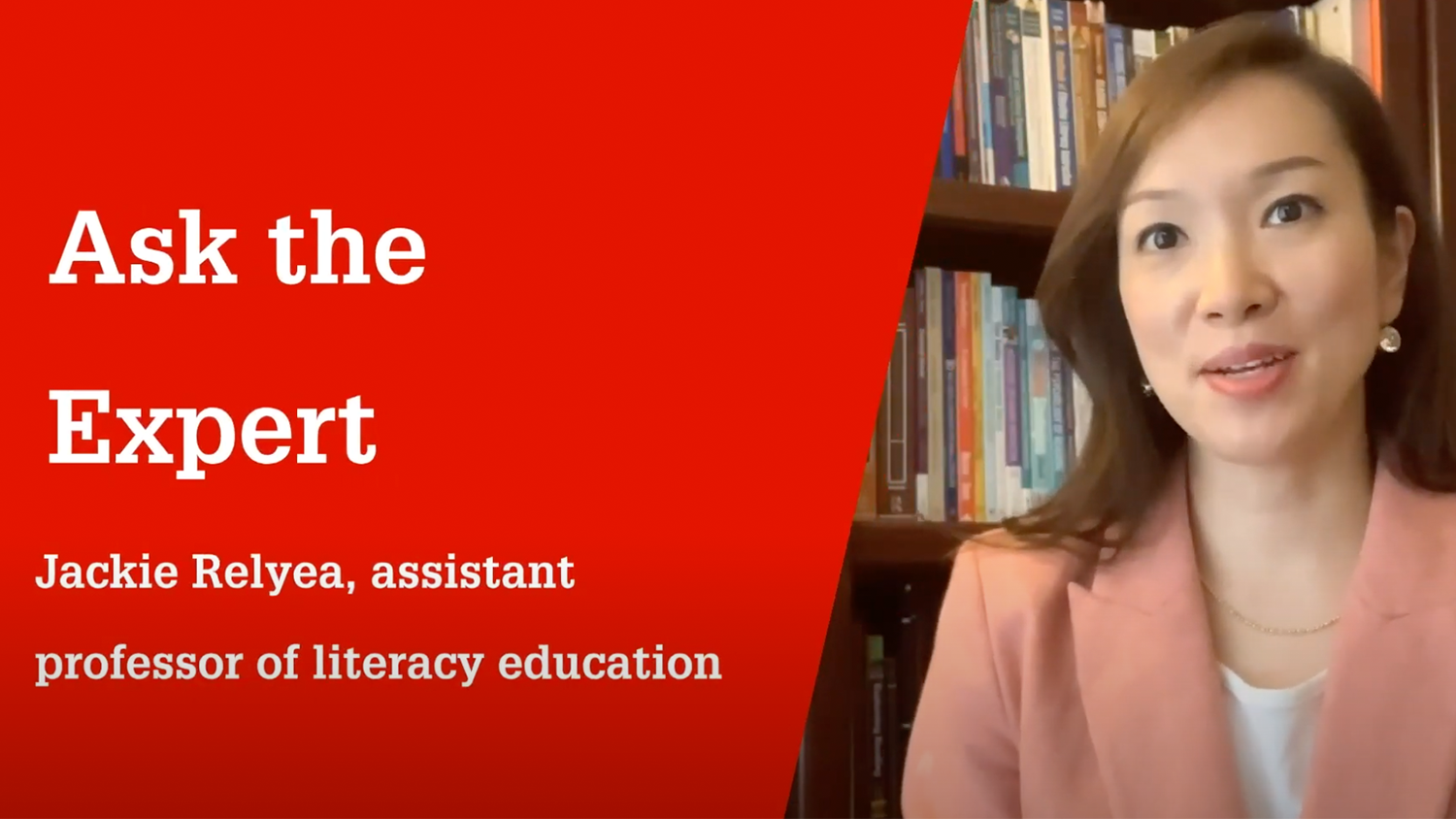Ask the Expert: How Can Teachers Help Bilingual Students Become Proficient Readers? Through ‘Consistent Exposure to a Variety of Texts and Explicit and Sustained Literacy Instruction,’ Says Assistant Professor Jackie Relyea

This is part of the monthly “Ask the Expert” series in which NC State College of Education faculty answer some of the most commonly asked questions about education.
English language learners’ development of second language literacy skills is often quite unique, says NC State College of Education Assistant Professor Jackie Relyea, Ph.D., because it often takes longer to develop than their day-to-day oral communication skills.
Relyea, who researches literacy development of linguistically diverse children as well as reading interventions to improve English learners’ academic vocabulary, reading comprehension and knowledge building, says that non-native speakers tend to develop basic, interpersonal communication skills very quickly, usually in about one to two years.
However, when it comes to academic language and literacy skills, including cognitive academic language proficiency, it tends to take English language learners between five and seven years to develop advanced levels of reading and writing skills.
“An English learner’s strong oral language proficiency doesn’t necessarily mean that they have an equivalent level of literacy skills in English,” she said. “The students need consistent exposure to a variety of texts and explicit and sustained literacy instruction in school.”
Relyea said that English learners typically have fewer opportunities than their native-speaking peers to learn academic vocabulary in everyday contexts and therefore may not have the same depth of knowledge as their classmates. In addition, English learners may not bring the same type of background knowledge to make connections to the texts that they read in class.
In order to support English learners in developing academic vocabulary and reading comprehension skills, Relyea suggests that educators gather as much information as possible about the previous knowledge and literacy experiences students have acquired with parents, siblings and their communities. Teachers can use this knowledge to find ways to practically and meaningfully link bilingual students’ experiences to classroom instruction.
“Teachers should draw on students’ background knowledge and experiences and build on what they already know in order to enhance their language and literacy learning,” she said.
One of the most helpful skills for emergent bilingual students that teachers can draw on is a student’s ability to read in their native language. According to a study of Spanish-speaking bilingual children co-authored by Relyea, those who started kindergarten with a strong ability to read in their native language attained higher reading achievement scores and made faster growth of English reading throughout elementary school even if their oral English proficiency was low.
The study demonstrates that the early literacy skills and knowledge that bilingual students establish in their native language can be transferred to the development of literacy skills in a second language. Therefore, bilingual students will learn new language and literacy skills when they are able to draw upon previous literacy experience and resources.
It is also important, Relyea said, that teachers provide rich and meaningful classroom experiences for English language learners to solidify their understanding of new academic vocabulary knowledge and the concepts they learn.
“They need to frequently engage in discussion where they can interact with their friends based on what they read and learn,” she said. “Educators should also provide opportunities to write about topics in content they are studying.”
Teachers who are hoping to help emergent bilingual learners gain reading comprehension proficiency in English can also utilize reading interventions.
Relyea is the co-principal investigator on a $1.4 million grant that will use a Building Knowledge and Language through Inquiry Framework to help bilingual readers strengthen language and literacy skills while building knowledge about interesting topics in various academic disciplines.
She is also using grant funding to further develop the Wolfpack Readers Program, an after school tutoring program developed by Associate Professor Dennis Davis, Ph.D., for elementary-aged students with reading difficulties, to improve struggling readers’ comprehension with informational text and reading engagement while transitioning the program in a virtual environment.
“The reading interventions to support English learners, especially their reading comprehension skills, may need to focus on systematically building academic vocabulary knowledge and also domain-specific content knowledge,” Relyea said. “This will help students understand complex informational text in science and social studies and also improve students’ engagement in reading and integrating new knowledge.”
Video by Ryan Clancy
- Categories:


